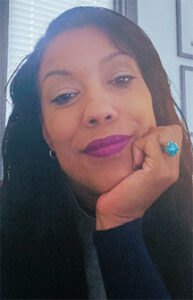
A Mental Health Moment
By Bernadette Joy Graham, MA, LPCC, LLC
The Truth Contributor
— a time dedicated to spotlighting the mental health challenges uniquely affecting the Black community. As a licensed clinical mental health therapist, I witness firsthand how deeply systemic inequities, generational trauma, and social pressures impact the emotional well-being of Black individuals and families.
Our community’s resilience is powerful, but it must not come at the cost of our mental health.
The State of Black Mental Health: What the Numbers Tell Us
- According to the S. Department of Health and Human Services, Black Americans are 20 percent more likely to experience serious mental health problems than the general population.
- However, only one in three Black adults who need mental health care actually receive it, according to the National Alliance on Mental Illness (NAMI).
- Suicide rates among Black youth ages 10–19 rose by 60 percent between 2001 and 2020, making it the fastest-growing rate of any racial group in that age category.
- Despite similar rates of mental illness compared to white Americans, Black individuals are less likely to receive evidence-based treatment and more likely to be misdiagnosed.
These disparities are not simply due to individual choices — they are the result of long-standing racial inequities in health care access, stigma, and cultural misunderstanding within the medical system.
Understanding the Roots: Why Black Mental Health is Under Strain
Mental health in our community is deeply connected to:
- Historical Trauma: Legacies of slavery, segregation, and systemic racism still shape our experiences and identities.
- Daily Racism and Microaggressions: Constant exposure to racial bias contributes to chronic stress, anxiety, and depression.
- Economic Inequality: Poverty, housing insecurity, and underemployment increase mental health vulnerabilities.
- Stigma: Cultural messages that equate therapy with weakness or “airing dirty laundry” discourage many from seeking help.
- Lack of Representation: Many Black individuals don’t feel understood by non-Black providers, leading to mistrust and underutilization of services.
Solutions: What Can We Do to Heal Our Minds and Strengthen Our Spirits?
As a therapist working in and for the Black community, I offer these solutions:
1. Normalize the Conversation
- Mental health is health. We must treat therapy as we do check-ups or physical training — a proactive investment in ourselves.
- Encourage open dialogue in churches, barbershops, beauty salons, and family gatherings.
2. Culturally Competent Care
- Seek out Black mental health professionals or those with cultural humility and training in anti-racist care.
- Platforms like Therapy for Black Girls, Therapy for Black Men, and Clinicians of Color make it easier to find culturally aligned providers.
3. Community Healing Spaces
- Group therapy, support circles, wellness retreats, and community-led healing events help build collective strength and reduce isolation.
4. Spiritual and Holistic Practices
- Mindfulness, meditation, yoga, art, and storytelling are culturally rooted tools that help manage stress and reconnect us to joy and purpose.
5. Policy Change and Advocacy
- Push for equity in mental health funding, insurance coverage, and culturally competent training for all providers.
- Support Black-led mental health initiatives and nonprofits doing grassroots work.
Healing Is a Form of Resistance
In a society that too often dismisses or devalues Black lives, protecting our mental health is a radical and necessary act of self-love and survival. This July, take a mental health moment; let’s not just raise awareness — let’s take action, seek healing, and uplift one another.
You don’t have to struggle in silence. Your story matters. Your healing is possible. Your mental health deserves care.
If you or someone you love needs immediate mental health support, call or text 988 to reach the Suicide and Crisis Lifeline. To find a Black therapist, visit: www.therapyforblackgirls.com, www.therapyforblackmen.org, www.psychologytoday.com or www.inclusivetherapists.com
